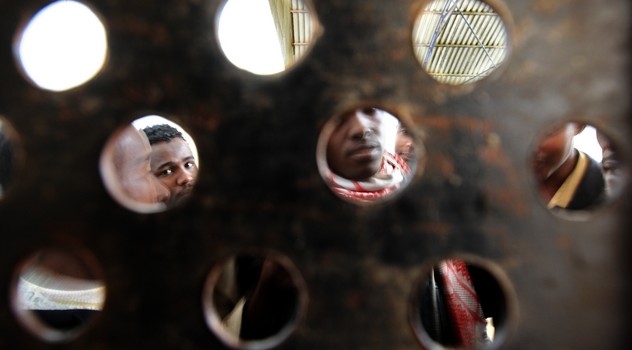Cesvi has been in Libya since 2011, and was the first Italian NGO to act following the Arab Spring.
Firstly, Cesvi intervened to provide humanitarian aid facing up to the emergency and to the needs arising from the conflict: distribution of food and non-food items to the more vulnerable and cash-for-work initiatives.
From the following year, collaborating with UNHCR, Cesvi began to work on the protection of the internally displaced persons (IDPs) and the refugees, asylum seekers and irregular migrants, coming mostly from Syria and sub-Saharan Africa. The project concentrated on individuals and families requiring medical, financial and psycho-social assistance. In addition to this there was the need for training and capacity building of the Libyan authorities in order to set up long term solutions and guarantee a better coordination among the partners.
The health project in the areas of Gharyan, Sabratha, Surman, Homs aimed to improve access to health services in the detention centres and the main IDPs’ camps in Tripoli, to improve the health services themselves, to increase the number of patients referred to outside health facilities, to open or restore clinics.
Since then Cesvi has continued to work in both eastern and western Libya along the same lines. Among other things it has provided services to the two Community Development Centres set up in Tripoli and Benghazi. The partnerships with UNHCR and UNICEF have made it possible to develop an integrated system of protection and child protection concentrating on direct economic assistance to the beneficiaries and on the delivery of psychological mental health services in the areas of Tripoli, Benghazi and Ben Walid.
After a first complete anamnesis of the detained migrants’ situation, the specialised operators identify the subjects in need of psychological assistance, referring the cases to the staff psychologist and, when needed, reporting them to the external specialised services (external referral). These last cases include those of minors and subjects entitled to humanitarian protection, which Cesvi refers to the competent UN agencies so that their release can be applied for.
In addition to the psycho-social support services, Cesvi staff working in the centres organises recreational activities for the detainees, such as sports and readings in different languages; the children are involved in play and educational sessions.
